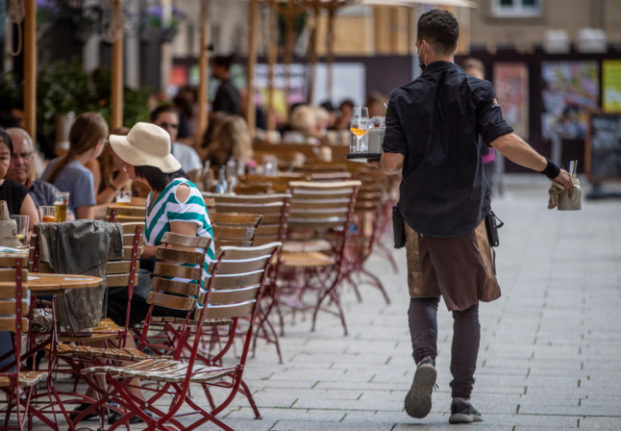“If 200 to 250 intensive care beds are occupied, we will consider introducing contact restrictions for unvaccinated adults,” Uwe Lahl, head of the Ministry of Social Affairs in Baden-Württemberg, told German paper Bild am Sonntag.
Such measures would include those already introduced in previous lockdowns, such as only two families being allowed to meet, he said.
And, above 300 intensive care patients, unvaccinated adults – even those with a negative test – could also be banned from visiting restaurants and concerts.
Thomas Strobl, the state’s Minister of the Interior, also felt tougher restrictions were needed for those who hadn’t been vaccinated, the CDU politician told the paper.
“If it hits the intensive care unit, you have to act. It would be wrong to hold everyone jointly liable, including those who have been vaccinated – that is why there will be different rules for those who have not been vaccinated than for those who have.”
In the south-west state, there are currently around 100 patients with Covid-19 being treated in intensive care. According to the state’s health authority, Lahl’s limit of 200 to 250 intensive care patients could be reached in a week, Bild reported.
At the peak of the second and third waves, over 600 patients were treated in intensive care in the state.
Bavarian health minister Klaus Holetschek also supported the suggestions, the paper reported. He said it was right to already be thinking about future measures, such as contact restrictions “to protect the health system”.
These came after Hamburg’s “2G option model” for event organisers and business owners came into force on Saturday, effectively banning unvaccinated people from venues who chose to sign up to the option.
READ ALSO: 3G to 2G: Hamburg venues can allow entry for Covid-vaccinated and recovered people only
READ ALSO: Germany’s 16 states bring in uniform Covid-19 rules
According to the latest figures, 60.1 percent of people in Germany are fully vaccinated against Covid-19 with just under 65 percent having had at least one shot.
More than 90 percent of Covid patients in intensive care wards had not received their jabs, Federal Health Minister Jens Spahn said Tuesday.



 Please whitelist us to continue reading.
Please whitelist us to continue reading.
yep, germany is now an authoritarian shithole
Germany is the country that is doing it right. People deserve protection from Covidioten (German term) who think they have a ‘right’ to endanger others.